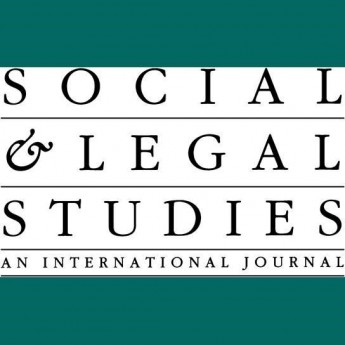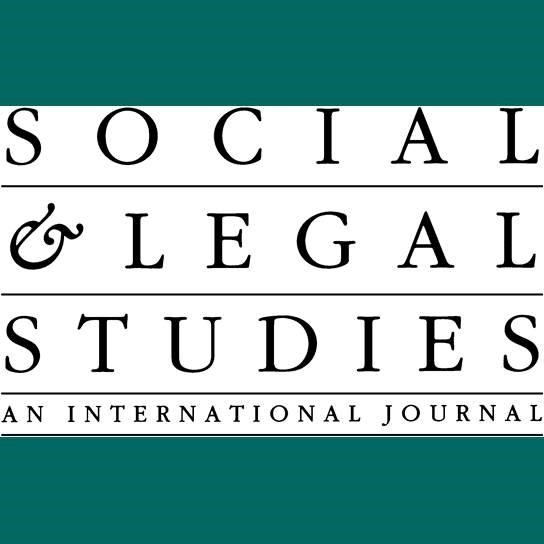Johanna Jacques
Assistant Professor in Law, Durham University
In my article published in Social & Legal Studies entitled “A ‘Most Astonishing’ Circumstance: The Survival of Jewish POWs in German War Captivity During the Second World War” (Open Access) I attempted to answer the question why Western Jewish POWs were protected rather than persecuted by the Nazis.
This research came about when, while reading a biography of the Jewish philosopher Emmanuel Levinas, I stumbled across what I thought was a puzzling fact: Levinas had served with the French army in the Second World War and had been captured by the Germans as a prisoner of war. But rather than being deported to a concentration camp where he would have faced a certain death, he was held in a POW camp in Germany for five years and was able to return to France unharmed at the end of the war. He had made no attempts at hiding his Jewish faith from his captors.
Levinas’ protection and survival seemed incongruous given the otherwise unrelenting nature of the Nazi effort to persecute Jews, an effort that is known not to have slowed before physical, legal and ideational obstacles. And yet, when I looked more closely at the treatment of Jewish POWs in Germany, it became clear that almost all Jewish POWs of the French, English and American armies received the same protection under the Geneva Convention as their non-Jewish colleagues. So why did the Nazis choose to comply with the laws of war in relation to this particular group of Jews when they persecuted all others, including POWs of other nations and, for example, French civilians?
When I set out on answering this question, I had not anticipated the challenges of writing – and publishing – an article relating to a historic era of such complexity and sensitivity. Perhaps naively, I had assumed that simply creating awareness of a little-known historical fact and offering an attempt at an explanation would be of interest to a wider audience beyond legal scholarship, particularly as there was no single historical publication devoted to the treatment of Western Jewish POWs. It was only when I had completed my research and began to correspond with historians and historical journals that I realised that, where history is concerned, things are not that simple.
Surprisingly to me, the main point of contention was not my explanation for the protection of Western Jewish POWs (which I readily concede is debatable) but the very fact of their protection. Most objections to my article thus took the form of questioning whether I was correctly presenting historical fact, even though I relied entirely on the first-hand accounts of former POWs and the scholarship of historians specialised in the treatment of POWs of different nations at that time. And yet, reviewers variously claimed that I had not established that the Nazis ever knew of the Jewish identity of some of their Western POWs – even though it is widely known that the Nazis held Western Jewish POWs in segregated units – that I had not established that they were really treated in accordance with the Geneva Convention – even though this is what was reported both by former Jewish POWs and historians – or that I could not write only about Western Jewish POWs without also addressing the treatment of Polish, Yugoslav and other nationalities, who did not receive the same treatment. Such objections speak of the difficult credibility and the uncomfortable nature of a story about something that has gone right – or at least not gone terribly wrong – in the middle of disaster.
It was precisely this contradiction, however, that had intrigued me and that I had thought required explanation. After all, for me the Nazis’ record when it came to the persecution of Jews was never under dispute nor did I think it could be affected by the minimally-legal treatment of such a relatively small group (in the article, I estimated that there were about 60,000 Western Jewish POWs). However, I later learned that I was not the only one facing unexpected questions, as after the publication of my article, I was contacted by descendants of Western Jewish POWs who said they had experienced similar reactions to their attempts to tell the same story.
These descendants were grateful to see an effort, however limited in nature, at shining a light on this particular chapter in history. They said they had been searching for an explanation for the protection of Western Jewish POWs for some time, as their fathers’ or grandfathers’ survival had always been a mystery to them. For them, as for me, the story of the survival of Western Jewish POWs was neither an easy nor a happy one to tell, entangled as it was with hardship and tragedy. But for them, as for me, it seemed important to think about what had made this survival possible, as this had directly determined their lives as it will determine the lives of prisoners of war today.
Read more by this author
J Jacques, Where Nothing Happened: The Experience of War Captivity and Levinas’s Concept of the ‘There Is.’ (2017) 26(2) Social and Legal Studies 230-248.
About the author
Johanna Jacques is an Assistant Professor in Law at Durham University. She holds degrees from SOAS, Birkbeck and the LSE and wrote her PhD on the international law theory of Carl Schmitt as applied to POW arrangements in the Second World War. Johanna now largely researches in property theory, although her research continues to be influenced by European philosophies of law and justice. She is a founding member of the Durham Centre for Law & Philosophy.

